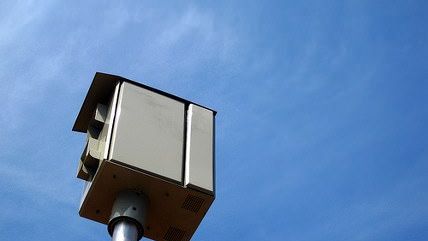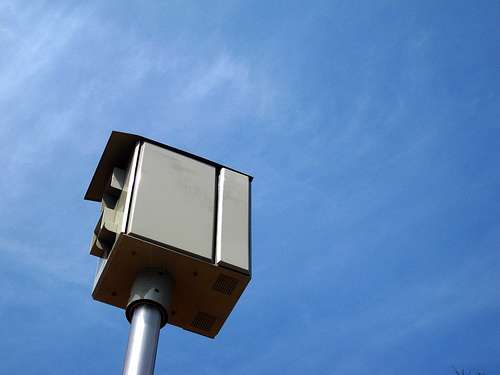$67 Million for 300 Traffic Cameras: Guess the City
One city thinks now is the best time to invest in technology that has been causing problems everywhere else its used


It's Chicago, of course. And this is what the city gets after a bribery scandal pushed one contractor out of the bidding process. The Chicago Tribune reports:
Mayor Rahm Emanuel's administration finalized a $67 million, five-year contract to install up to 300 cameras to catch speeders around city schools and parks, but a slow rollout could mean as few as 50 locations operating this year, the city and vendor confirmed Wednesday.
The program sold by the mayor as a child-safety initiative could eventually mean hundreds of millions of dollars in ticket revenue for the city. But Emanuel reduced his initial projection of $30 million in ticket revenue this year to $15 million, due to a combination of technical delays and the bribery scandal that engulfed the city's red light camera vendor amid a series of Tribune stories that began last year.
That contractor, Redflex Traffic Systems Inc., was considered a prime contender for the new speed camera program before the Tribune disclosed allegations that it won the red light deal as part of a $2 million bribery scheme involving a former City Hall manager. Emanuel disqualified Redflex from city contracts, and his administration eventually settled on a prime competitor, Arizona-based American Traffic Solutions Inc., as the preferred bidder for speed cameras in February.
You have to love how they barely mention the goal of protecting the children as the excuse for the cameras, but really it's all about the revenue. Somebody has to pay for those recent raises for those teachers who do such a terrible job teaching those same children.
And it wouldn't be Chicago if taxpayers had absolutely no idea whether they were getting a good deal or if this program even worked:
The city declined to release the bids of eight other companies that competed for the contract, as well as data from test cameras that ATS and contract finalist Xerox State & Local Solutions Inc. operated in Chicago. Territo also declined to identify how many potential speeders ATS cameras caught in the monthlong testing period but said the data showed "there's no question there is a significant problem with speeding in the city of Chicago."
But no doubt everything will turn out okay:
ATS agreed to pay $4.2 million in partial refunds on a half-million New Jersey tickets that might have been issued in violation of state law. While not admitting fault, the company said it wanted to support its client cities to cut short a series of class-action lawsuits alleging its red light camera systems weren't properly inspected or certified by 11 municipalities before citations started being issued in the state in 2009.
Territo said Wednesday that the New Jersey problem was tied to certification of timing problems that were not the company's fault, and he said ATS' speed camera program has "multiple layers of review to ensure that violations are being issued to actual speeders."


Show Comments (65)